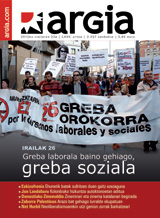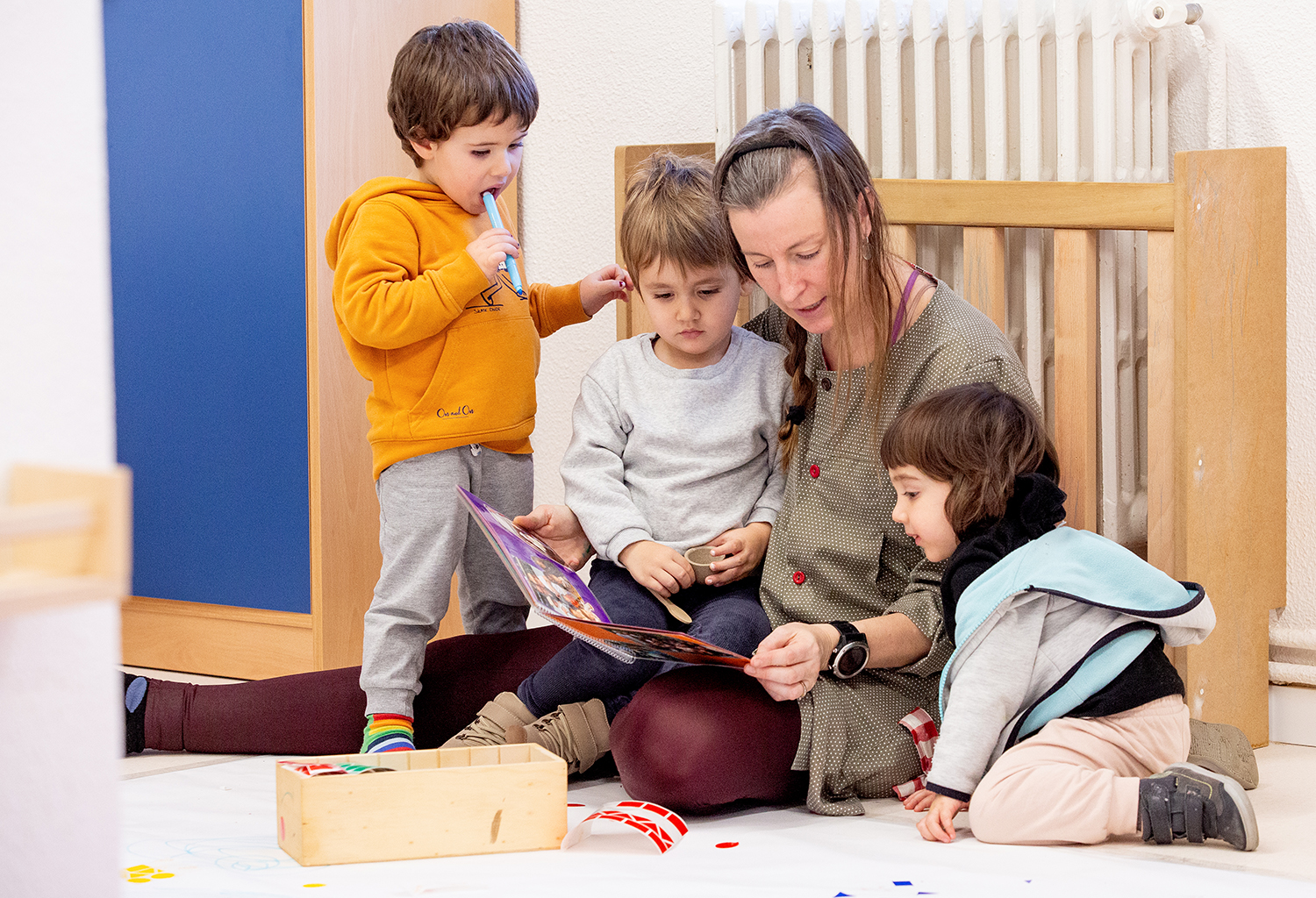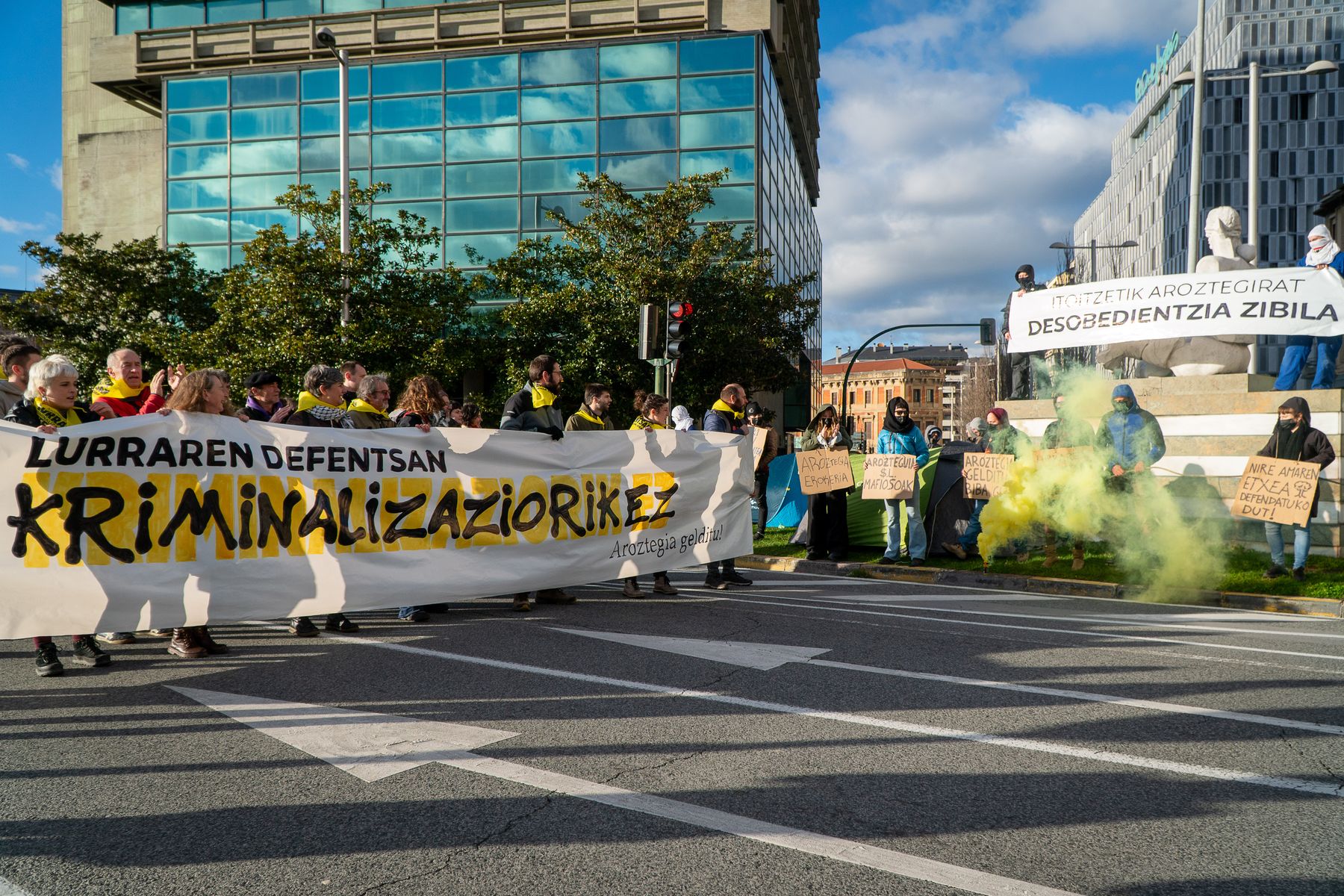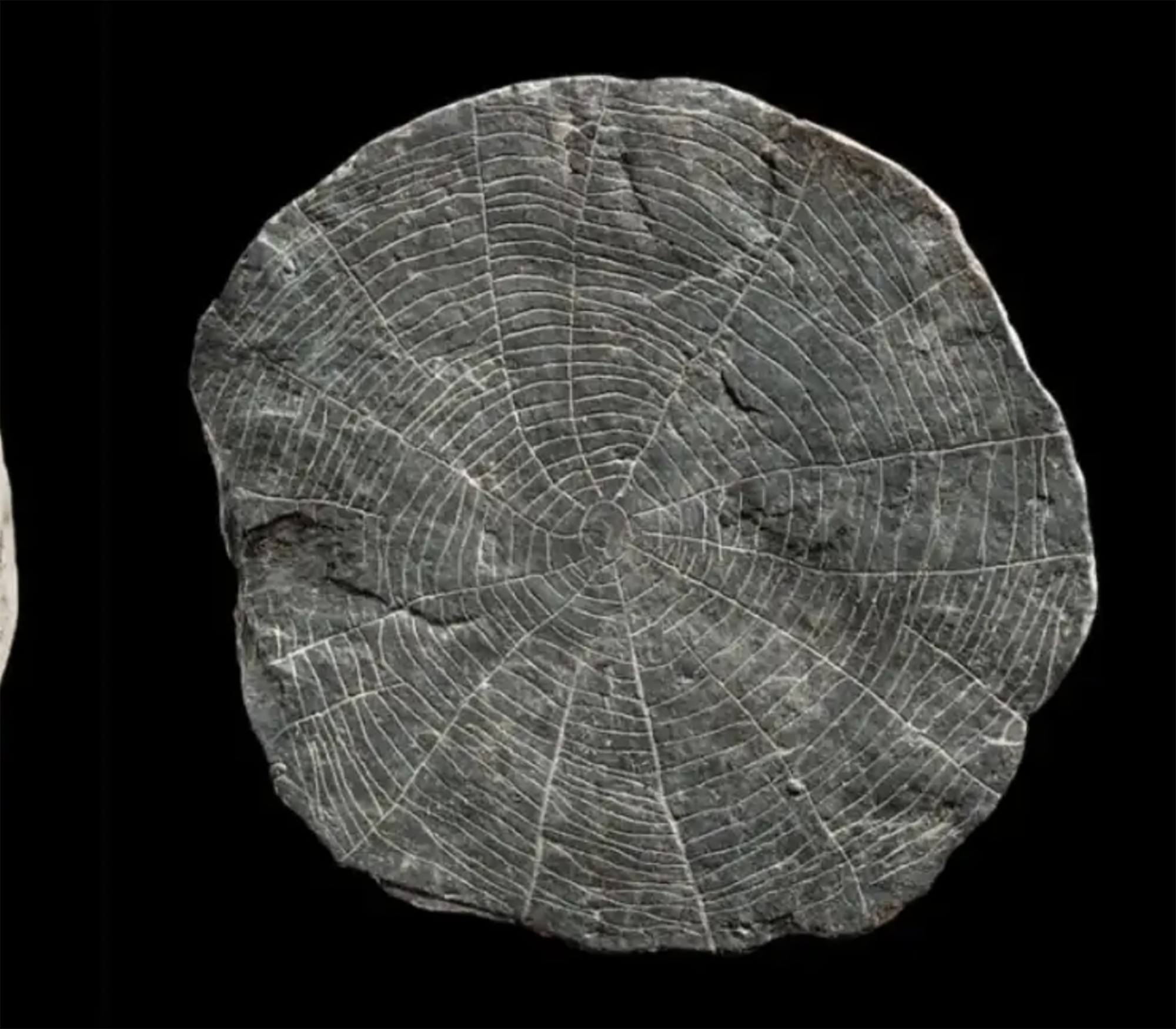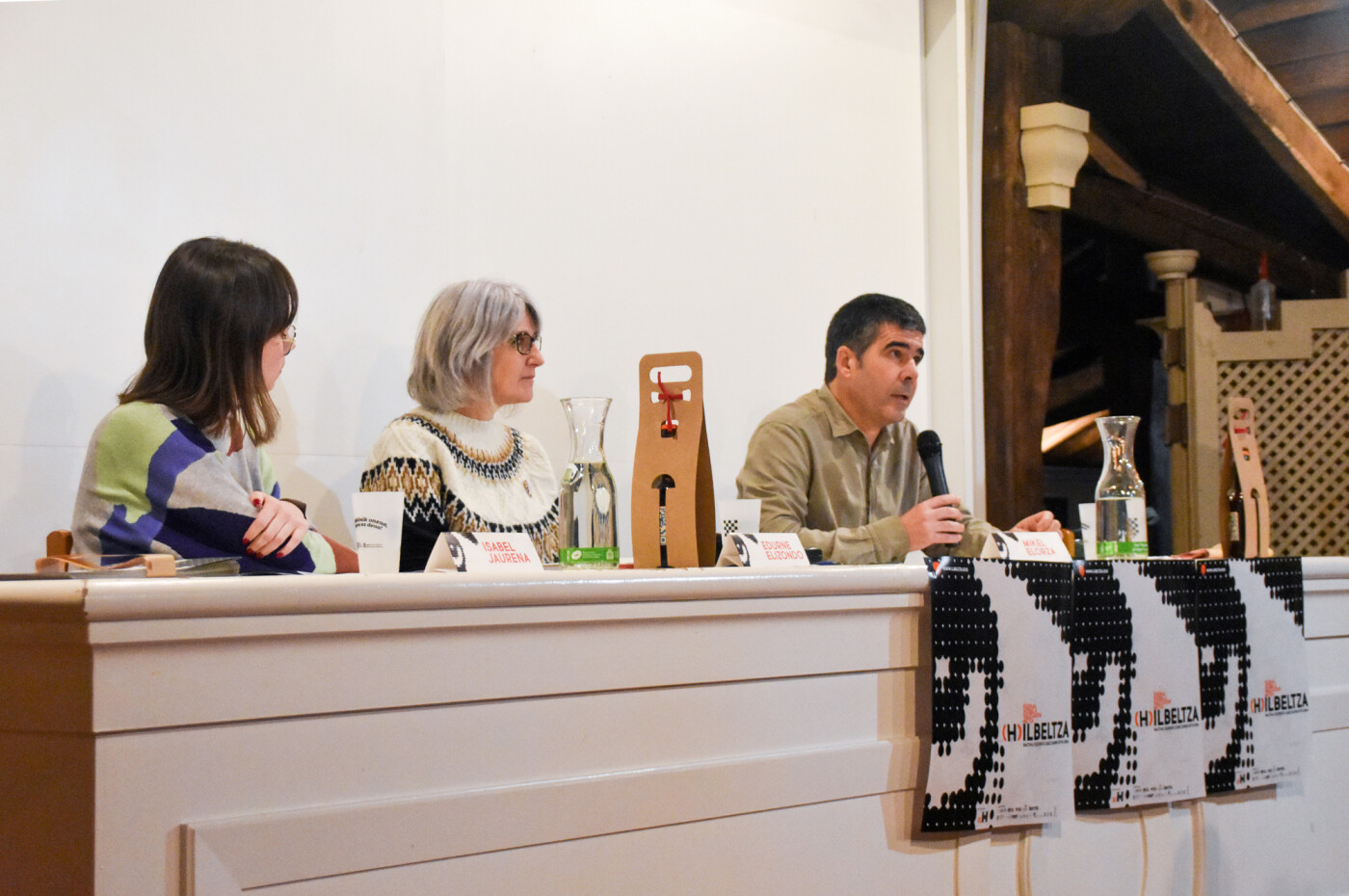"Colombia is a unique laboratory to see what the human being is"
- From Vitoria-Gasteiz father, mother of Zarauz, native of Paris, Colombia... The most expert Colombian language specialist is the Basque.
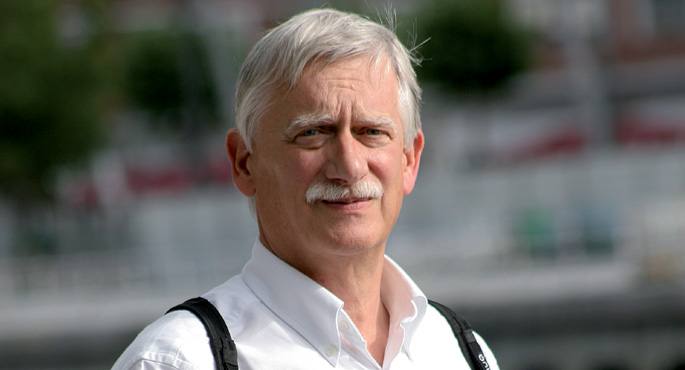
“After several hours of unheading and half lost in the savanna of Orocuco, in Colombia, I arrived at the village of some Indians in the center of Los Llanos, east of Orinoco, completely tired. The year 1968 came to an end.” You have written it. Never! Son of the first vicelehendakari of the Basque Government and PNV deputy, Francisco Javier Landaburu, born in the exile of Paris, lost in the Colombian jungle.
Yes! In the late 1950s, my father made a decision. It made him hard, but he always told us it was necessary: it made us adopt French nationality. I didn't want us to be Spaniards. Also my brother Gorka would have told you [see interview with Gorka Landaburu in 2180 of Argia]. Moreover, for us to be Basques, the parents sent us here in summer. His father did not want the relationship with the Basque Country to be broken. I didn't think of it. He, for his part, had decided not to attend for the duration of the Franco regime. It is evident from his political commitment, for being loyal to José Antonio Agirre and for maintaining the representation of Paris. At the end of the 1940s he managed to get us the nationality of France through his friends who were working on the construction of European social democracy. It was not easy! So we were French. He was stateless, according to the UN Statute. My father did not go to the Spanish embassy, nor did he go to the French embassy. He was a stateless man who went to meetings and assemblies in the various countries.
Your father, stateless. You, citizens of France.
Being French gave us facilities to move, opened the way for us to reach the Basque Country. The Franco police would take action against us, those of us who were citizens of France. Spain had too many things to do with France at the time!
The advantage, therefore.
But there were also some disadvantages to the other side of the coin: we had to go to military service, ha, ha. The time of the Algerian war, for example, was very complicated for our older brother, Xabier. He was in Algiers for two years. Xabier returned from the war at the time of our father's death. At the age of 55, our young father, like Agirre, died. It was three years. There is also something to tell… Well, the two of them died suddenly, the two young men. I was already in college. I studied Philosophy first and Linguistics later in the Sorbonne. So it's time to go to military service. Then came a way of doing military service, civil cooperation. Through it, young university students could develop their profession in different countries of the world. There were engineers, doctors, teachers... I was among them.
You spent in Colombia.
I was sent as a philosophy professor to the French Lyceum in Bogotá. Not in vain! I was soon in contact with their universities and, above all, with the University of the Andes, where they had an excellent anthropology department. His director, [Gerardo] Reichel-Dolmatof, of Austrian origin, called me after two or three months: “You’re doing it right, but the time has come to get down from abstraction.” I would be 23-24 years old. “Abstraction.” Young! “I want to make a proposal to you. Here's a lot of languages, a lot of strangers. We have the testimony of the words, at best, but nothing else. Why do you not get to work on it? I’m going to surround you with funding,” “but I’m not interested. I am Euskaldun, I have studied linguistics, because from the point of view of philosophy, that is, from the point of view of universality, I wanted to analyze the functioning of our language and, in general, of the other languages”, “go and look”. She gave me money, she promised me to buy, and she almost kicked me in the back to get me out and do the work, because I had no intention of doing it.
In June, at the ceremony of the Linguapax Prize in Barcelona, he highlighted three aspects that received the request to study Colombian languages and that helped you enter this world. First of all, he was a Basque, son of exiles. Secondly, he was also a French university. Thirdly, you intended to be a linguist.
Yes. Being the son of the Basque Abertzale led me to value my language. In addition, at that time the Basque language was a minority, persecuted and annulled language. At that time of universality I met those farmers and I was, in a way, faithful to the fate of my people. These Indians were, of course, much poorer than the peasants here, and their language did not have the persecution that the Basque country suffered, but in a social environment there was contempt and contempt for their language. It was an illusion.
A romantic illusion?
Yes, yes, a romantic illusion. I wanted to analyze the Basque language, the root of the language, the language despised at that time. Of course, he bore the illusion of the young French. The French have always been salva lovers, they say bon sauvage, as if the mystery of the world were in them. Pure romanticism! Jean Jacques Rousseau, Chateaubriand and others… What is out of our trend gives us a kind of clarity, we need it. In reality, there is nothing wrong, but sometimes that brings with it a kind of mystification, especially when you want to go too far. Otherness is the attraction that occurs when you want to understand and accept. Maybe that's what happened to me. I was partly surprised by the mystification, but not entirely.
The third agent on your way back then, the desire to be a linguist.
Andre Martinet's linguistics, who was a professor at the Sorbonne, were also structuralist. The language was shown as a closed system, it was completely structured, it was completely compact. As I said, I went from French lyceum to college, and when I started studying Colombian languages, I realized that European linguistics didn't work for me. European linguistics were built on ancient texts. They were Indo-European texts, written literary texts. As for me, I was interested in the societies that lived in orality. In this situation I had to resort to American linguistics in search of light. There, they were excellent linguists who had already travelled the way I wanted to go: [Ranz] Boas, [Edward] Sapir and others. Also then, Benjamin Whorf's romantic philosophy dominated. In other words, he said that language represents the culture and mentality of a people.
With this thought you went to work.
Yes, the linguistic situation of the indigenous people was not that of the Basques, the one thought by the romantic French of the non-Indian era, the language was not what the structuralist linguists of the 1970s believed... By then some already talked about the relationship between languages. Others were already saying that language is not a closed organism, not an essence, but a very changing historical process.
Language, the historical process?
Yes. Now it's said that language looks like an animal species, that every individual has their system. They referred to the idiolects. That language, in fact, doesn't exist, that each one has its strategies, that most people, or at least many, are bilingual, and with whom we work, that we change the language system, that we adapt it. This will certainly help us understand why languages change, why they come into contact, why words and structures lend each other ... When, at that time, we thought that Euskera was a pure essence, for example, almost falling from heaven, these issues were not understandable to us! These historical phonetic research carried out by Koldo Mitxelena and those made from Martinet! That has changed. Today we know that language is not a monolith, nor a mirror of the spirit of the people, although the Germans believed it that way. Little by little we realized that the “salbaia” was not the source of truth, that the situation of the Basque country was not that of the languages, which there were no possible comparisons.
All the guesses were against you…
Yes. Over time, I became nuanced, learned, especially by force of practice, living with indigenous people, understanding their strengths and weaknesses, and seeing that they had a lot to teach us.
He has made the way, then, since 1968. You have studied the languages of the ethnic groups of Colombia as nobody else. I have read 68 languages, one million speakers, among the 46 million Colombians.
The situation is diverse and complex. Diversity, because there are multiple situations. You have thirteen language families. That is terrible! Among them, eight isolated languages, the same as the Basque language. There are no trees, there are branches. Slag, if you want, vine... Finally, we tend to say so, to use metaphors when we don't know how to explain a reality that we don't understand. The honest scientist knows he doesn't know. It approaches, it fails, it fails, the system it has built doesn’t work for it… That’s how the scientist works.
You say that the language…
Yes, the genetic variety of scum. They're all very different. This great diversity is due to the geographical situation of Colombia. Colombia is on the way out of the conflict between the two United States and, therefore, all the peoples passed through there. Many of them stayed there. This huge variety of origin is there. On the other hand, diversification is not small either, the country is also ecologically very varied and the territory is full of thermal deposits. We're under the equator, on one, and we go up to 6,000 meters on the other! Here you have everything: stepa, savanna, two oceans, three mountain ranges, tropical forests…
Plurality.
In Colombia, we have biotopes that are and are not, all or most of the ecological systems that exist on the planet. In each of these thermal deposits, we have societies that have developed over millions of years and that have developed and modified their own languages. You have a unique lab to see what the human being is. Colombia, Kenya, New Guinea… There are several countries in the very unusual world where the adaptive capacity of the human brain is particularly appreciated, where it creates and modifies symbolic systems, to the point of conceptually inventing entellar technology. Because, after all, understanding is a technology. Thus, the way of thinking time and space, the way of classifying beings, the way of forming processes… is totally varied and, consequently, there is a fascinating expansion of the human brain, materialized in languages.
Jon Landaburu Illarramendi (Paris, 1943) euskalduna da, eta frantses eta kolonbiar hiritarra, beraren curriculum vitae-k agintzen duenez. Kolonbiako hizkuntza autoktonoetan espezializatutako hizkuntzalaririk inportanteena da. Era berean, hizkuntzalariak prestatu ditu bateko eta besteko kolonbiar hizkuntzak azter ditzaten. Hizkuntza indigenak biziberritzeko legeriaren bultzatzailea da, eta Kolonbia bertako hizkuntz komunitateen kolaboratzaile zuzena.
“Iberiakoen inbasioak kataklismoa eraman zuen Amerikako herri indigenetara. Inoiz izan den hondamendi demografiko eta kulturalik handiena izan zen. Hildako kopuru handia, lehenengo, ‘txoke biologiko’-aren ondorio izan zen. Amerikako indiarren erdia baino gehiago europarren bakteria eta birusek hil zituzten, hau da, nafarreriak, tetanoak, tifusak, gripeak, elgorriak eta bestek”.
“Inbasoreek gizarte sistema kolonialista esklabista inplementatu zuten. Herrien funtzionamendu autoktonoa suntsitu zuten, eta ordu arteko gizarte egiturak eta ahalmen teknologikoak hondoratu zituzten. Konkistatzaileek langileak esklabizatu zituzten, eta familia eta auzo mailako harremanak izaten baino ez zieten utzi”.
“Bertako apaiz eta administrarien jakintza desagerrarazi zen. Artisauak, urregileak, eltzegileak, ehuleak, eskulturagileak, arkitektoak, itsasontzi-jabeak… nabarmen urritu ziren, edo desagertu. Esklabotasuna, sarraskia eta okupazio militarra nagusitu ziren. ‘Deskubrimenduak’ mendeak iraun zituen”.
“Bi urtekoa zen soldadutza garai hartan. Kolonbiara Kooperazio programaren barruan heldu eta Iñaki Garai ezagutu nuen. Gernikarra, euskal etxe txiki bat zuen Bogotan. Eta esan zidan: ‘Txikito! Hiru urte baino gehiago egiten badituk hemen, izorratuta hago, ez duk itzultzeko modurik izango”. Horixe zen beraren esperientzia. Lau urte geratu nintzen, eta Iñakik arrazoi! Itsasoa zeharkatzen nuen aldiro halako ezinegon bat izaten nuen, Kolonbiara itzultzera bultzatzen ninduena. Eta halaxe izan da nire bizitza”.
Aurretik bistaz ezagutzen banuen ere, musikaren munduak hurbildu gaitu Julen Goldarazena eta biok. Segituan ezagutu nuen Flako Chill Mafiak erakusten zuen irudi horretatik harago eta horrek baldintzatu dizkit, hein handi batean, proiektuarekiko harremana eta iritzia. Lauzpabost... [+]
Erretiratu berri den lankide-ohi baten omenez, Historiako irakaslea. Bejondeizula!
Hezkuntza-legeek azpimarratzen dute zein garrantzitsua den ikasleengan pentsamendu kritikoa sustatzea. Baina irakasle-klaustroak, garai batean ideien eztabaidarako eta proposamenak... [+]
The liberal democracy of the Western countries has a growing appearance of a minimalist democracy. At the heart of the definition would be respect for changes in government through elections. The authoritarian variant of this was called competitive authoritarianism by political... [+]
Commissioned by the developer Palacio de Arozteguia, hundreds of oak trees were illegally cut in Baztan’s Lázaro lands in 2021. The citizens managed to stop, putting their body in front of the machines and spending days and nights in these lands. The company that acted... [+]
Zutabe hau idazten nengoela, gaia aldatu behar izan dut, nire arreta osoa harrapatu dutelako Trumpen muga-zergek. Azalpen gutxi beharko duzue, leku guztietan da berria, Txinako produktuei %10eko zerga eta Kanadako eta Mexikoko produktuei %25eko muga-zergak jarri dizkie. Trumpek... [+]
This wedge that the announcement on the radio Euskadi to replace the bathtub with a shower encourages the commencement of the works in the bathroom of the house. A simple work, a small investiture and a great change are announced. There has been a shift in toilet trends and a... [+]
Archaeologists have discovered more than 600 engraved stones at the Vasagård site in Denmark. According to the results of the data, dating back to 4,900 years ago, it is also known that a violent eruption of a volcano occurred in Alaska at that time. The effects of this... [+]
Vietnam, February 7, 1965. The U.S. Air Force first used napalma against the civilian population. It was not the first time that gelatinous gasoline was used. It began to be launched with bombs during World War II and, in Vietnam itself, it was used during the Indochina War in... [+]









